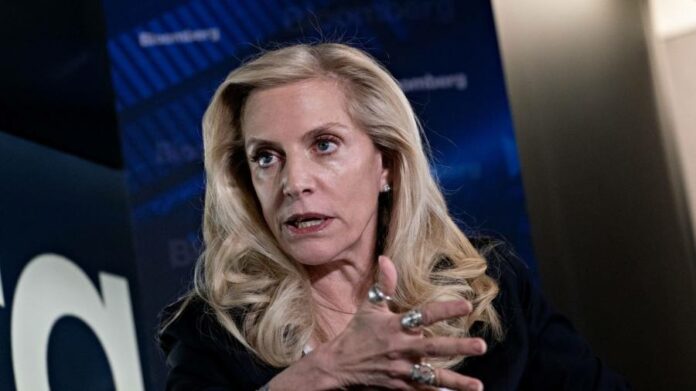The vice-chair of the US central bank has said the Federal Reserve still has “additional work to do” in its fight against inflation, even as she backed slowing the pace of rate future increases.
Speaking on Monday, Lael Brainard said the Fed should “soon” bring its string of supersized interest rate increases to an end, having raised rates by 0.75 percentage points at each of its four previous meetings.
By moving at a pace that is more “deliberate”, she said the Fed would be in a better position to both assess the incoming economic data and adjust the path of rate rises as needed.
However, Brainard emphasised that a slower pace of rate rises did not mean the Fed was backing off of its efforts to tackle price pressures, which are among the most intense in decades.
“We’ve done a lot, but we have additional work to do both on raising rates and sustaining restraint to bring inflation down to 2 per cent over time,” she said, adding that while October’s better than expected inflation data was “reassuring”, it was only “preliminary”.
Brainard, one of the most dovish members on the Federal Open Market Committee, has long emphasised the need for the Fed to take into account not only the “cumulative” tightening that has already been delivered, but also the lagged effects on consumer demand, the labour market and other metrics when considering how aggressively to raise interest rates.
On Monday, she reiterated the importance of staying “vigilant” in regard to potential global spillovers from the Fed and other central banks’ historically aggressive efforts to root out sky-high inflation.
“We are highly cognisant that in a world where many central banks in large jurisdictions are tightening at the same time, that is greater than the sum of its parts,” she said.
Brainard’s views have become more widely accepted across the Fed, with chair Jay Powell confirming at the latest policy meeting earlier this month that a reduction in the pace of rate rises could come as soon as December.
However, Powell added that stubbornly high inflation and a resilient labour market were likely to mean the Fed might ultimately need to push rates to a higher level, and keep them “restrictive” for longer, suggesting more economic pain than was initially expected.
In a recent interview with the Financial Times, Mary Daly, president of the San Francisco Fed, said a so-called “terminal rate” of “at least 5 per cent is probably likely”. Much would depend on the trajectory for inflation, Fed governor Christopher Waller said on Monday, though he added that the Fed still had “a ways to go” before pausing its rate rises.
Commenting on the risk of recession in the next 12 months, Brainard acknowledged on Monday it was “very difficult” to give a projection, but reiterated that the “very unusual” labour market — featuring near-record job openings and a widespread worker shortage — might mean fewer job losses and lower unemployment than previous monetary tightening campaigns.
Asked about the wild gyrations in cryptocurrency markets following the collapse of FTX, one of the biggest players in the industry, the vice-chair said it was “really concerning to see that retail investors are really getting hurt by these losses” and called for the imposition of “strong regulatory guard rails” similar to those that governed more traditional corners of finance.
“Despite a lot of hype . . . about how decentralised these markets are and how innovative and different,” she said, “it turns out they’re highly concentrated, highly interconnected and you’re just seeing a domino effect [of] failures from one platform or one firm spilling over elsewhere.”






